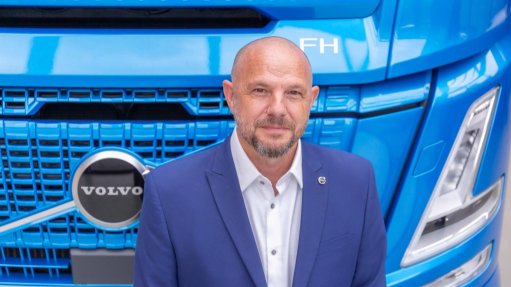Observations on Africa’s climate and development nexus
It has always been maintained and will continue to be maintained that the route to curing the climate challenge in Africa is to define a new pathway for development. That pathway has to be aligned towards a industrialisation strategy that is decarbonised and ushers in a new modernity.
The path will not be an easy one and nor should terms be arranged that force Africa into a perilous poverty trap. By the next decade most of the poor and low-income countries will be based in Africa and this is largely due to the continued Balkanisation of Africa.
Climate change issues are a global phenomenon and Africa’s needs and responses require an approach that is a whole economy and society approach. This is largely a function of the nature of climate diplomacy and that climate negotiations have been hogged by a sort of negotiators guild speaking their own language and seemingly speaking to themselves.
Things, though, seem to be changing with the recent release of the African Union’s strategy on climate, the statement of the Committee of African Heads of State on Climate (CAHOSC) released after the AU Summit in February and the new clarion call by the African Group of Negotiators for a more integrated approach to climate issues and negotiations.
The next Conference of Parties (COP) meeting in Egypt, COP 27, is to be held in Sharm-El Sheik, and is pregnant with promise and may lay the groundwork for a different climate diplomacy.
What are the important issues for a climate and development nexus approach to climate diplomacy?
We need to focus on increasing the energy dividend and protecting labour intensive sectors from climate vulnerability. We need to straddle the political-economy of global finance, increasing technology access and innovation and enhancing coordination and cooperation across society.
The developmental pathways that support growth and inclusive distributional measures serve as an important bulwark to climate vulnerability as climate investments have to increasingly be tied to climate proofing key economic sectors and using the shifts to new energy technologies to modernise the energy sector as well as link it to economic diversification.
It is evident that as Africa diversifies its economic base and it creates more fiscal space it is able to tackle both eminent and future challenges from climate change and in so doing depending less and less on donor handouts. Climate change as it has been perceived and engaged on the continent has been trapped in a language of negativity rather than opportunity.
Every story one reads about the continent’s climate challenges mimics stories about poverty, conflict, crime and famine. This is not to dissuade you that these things do not exist but this is a vast continent that does not only have negative assets but also positive endowments. Africans are not only dark bodies all hovering on the shores of Spain or the Greek island of Lesbos to enter Europe but are a creative, intelligent and resilient people that can do things for themselves.
Take for example what the increase in the energy access dividend can do.
The improvement in electrification of the continent increases access to financial services (especially for smaller farmers), internet access enhances integration of Africans into the global economy and as urban electrification is improved it will lead to the democratisation of economic participation and entrepreneurship.
Africa can achieve higher levels of decarbonisation by avoiding future emissions trajectories given that the continent’s carbon footprint is pithy compared to the rest of the world.
Climate energy and resilience transitions have to be hardwired into the economic planning and process.
The important thing here is to change the entire paradigm of the discussion itself. At least for the African continent we need to move the conversation from an aid support paradigm to an investment support model of engagement on matters related to climate resilience and energy clean energy transitions.
The South African government has secured a pledge from donor countries for a $8.5-billion deal, for its own just energy transition programme, at Glasgow which is an example of how National Determined Contributions (NDCs) can be better aligned to attract climate finance and other sources of finance beyond the paltry $100-billion from the climate fund – which has been slow in moving and has to be recognised not all the funds will come Africa’s way.
The revision to South Africa’s NDC in 2020 provided the basis for the $8.5-billion deal given that the just transition deal has the potential to deliver a sizeable amount of carbon offsets before 2050.
Even where climate finance has been available it has been in the form of loans rather than grants. This may defeat the purpose for countries that are told not to use gas or oil and then forced to face a double whammy: first a ban on their gas and the second where transition finance is not an incentive but ends up loading the debt burden.
Climate issues have to be taken out of the chuckhole of Paris speak. We need to free the climate debate from the Paris discourse while still protecting the value of the Paris process to engage climate issues at a multilateral level. We need to recognise that the decarbonisation push by advanced or high-income economies is shifting the scale towards strategic competition and the upsurge in new technology investments is a way to rewire the entire world’s energy geopolitics.
Being fossil free also increases the depth of economic sovereignty – this is a dimension that fossil dependent economies have yet to appreciate and will have to consider what their own transitions need to look like in both the short and long term. Most fossil dependent economies on the continent derive fiscal and foreign exchange revenues from oil and gas exports and as somebody once noted, leaving little trace of this bounty on the rest of the economy.
Africa’s climate diplomacy has to be linked to its development and growth needs – it has to be whole economy approach.
Article Enquiry
Email Article
Save Article
Feedback
To advertise email advertising@creamermedia.co.za or click here
Press Office
Announcements
What's On
Subscribe to improve your user experience...
Option 1 (equivalent of R125 a month):
Receive a weekly copy of Creamer Media's Engineering News & Mining Weekly magazine
(print copy for those in South Africa and e-magazine for those outside of South Africa)
Receive daily email newsletters
Access to full search results
Access archive of magazine back copies
Access to Projects in Progress
Access to ONE Research Report of your choice in PDF format
Option 2 (equivalent of R375 a month):
All benefits from Option 1
PLUS
Access to Creamer Media's Research Channel Africa for ALL Research Reports, in PDF format, on various industrial and mining sectors
including Electricity; Water; Energy Transition; Hydrogen; Roads, Rail and Ports; Coal; Gold; Platinum; Battery Metals; etc.
Already a subscriber?
Forgotten your password?
Receive weekly copy of Creamer Media's Engineering News & Mining Weekly magazine (print copy for those in South Africa and e-magazine for those outside of South Africa)
➕
Recieve daily email newsletters
➕
Access to full search results
➕
Access archive of magazine back copies
➕
Access to Projects in Progress
➕
Access to ONE Research Report of your choice in PDF format
RESEARCH CHANNEL AFRICA
R4500 (equivalent of R375 a month)
SUBSCRIBEAll benefits from Option 1
➕
Access to Creamer Media's Research Channel Africa for ALL Research Reports on various industrial and mining sectors, in PDF format, including on:
Electricity
➕
Water
➕
Energy Transition
➕
Hydrogen
➕
Roads, Rail and Ports
➕
Coal
➕
Gold
➕
Platinum
➕
Battery Metals
➕
etc.
Receive all benefits from Option 1 or Option 2 delivered to numerous people at your company
➕
Multiple User names and Passwords for simultaneous log-ins
➕
Intranet integration access to all in your organisation

















